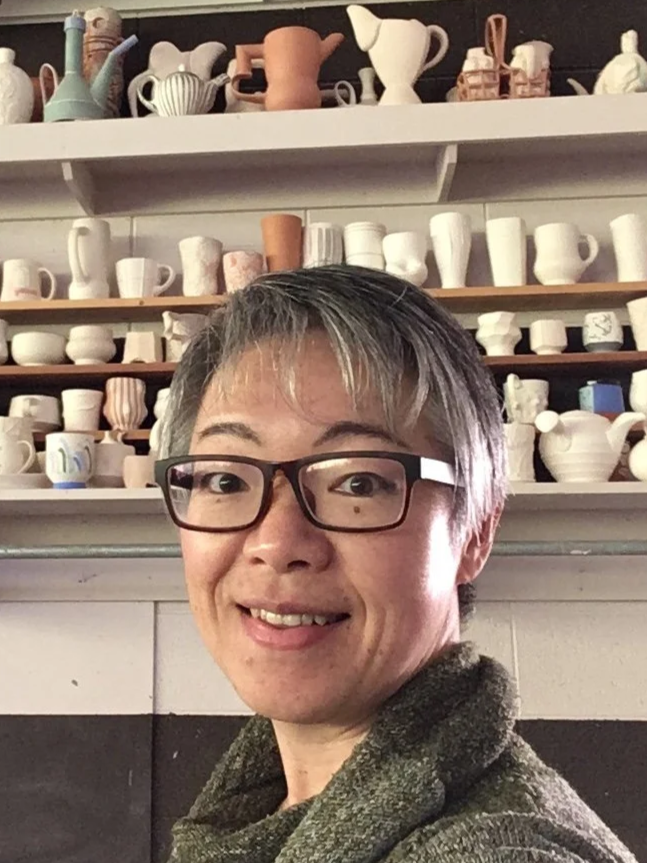Most of my work features surface decoration using the technique of Sgraffito. The word Sgraffito comes from Italian and means “to scratch.” In essence, the technique involves applying underglaze to the surface and then carefully carving or scraping away parts of it to reveal intricate details and create visual narratives.
I begin by sketching the details with a pencil. If I change my mind, I can simply wipe away the lines with a damp sponge. These pencil marks burn off completely during firing, leaving no trace behind.
I begin applying the underglaze lines with a brush, carefully building the design. If I make a mistake, I can simply scrape it off with a sharp tool, allowing for precision and flexibility throughout the process.
Next, I begin applying color to the detailed areas. As the hues are added, you can see how the black underglaze lines become more defined and clean, enhancing the overall clarity of the design.
The head portion is completed using colored underglazes and fine scraped lines, adding depth and character to the design.
The beginning of the scale part.
The scale part is completed with the re-enforcement of painted lines and scraped lines.
The tail part in progress.
This is the part I enjoy most. It’s time-consuming, but every moment is deeply satisfying and full of joy.
Here’s the finished plate. I forgot to take photos during the carving process—rain check on that?










